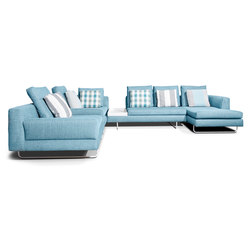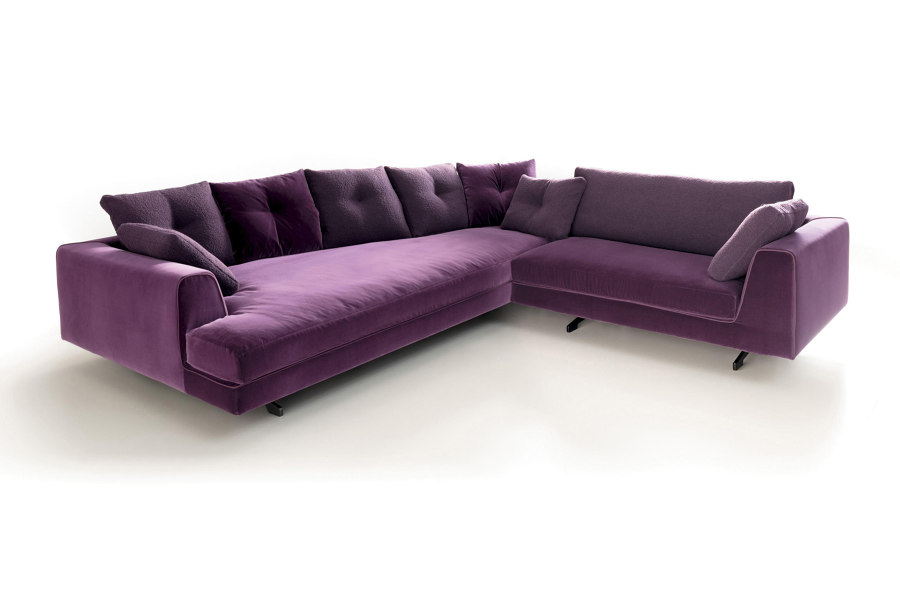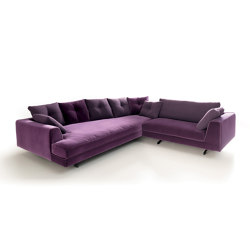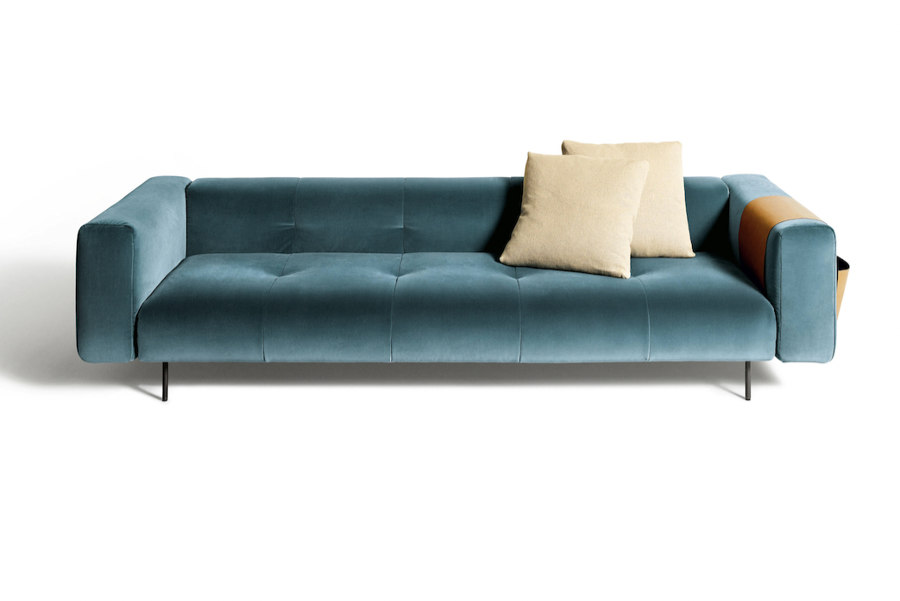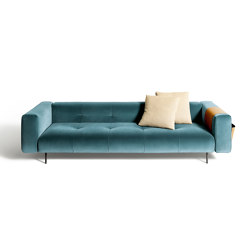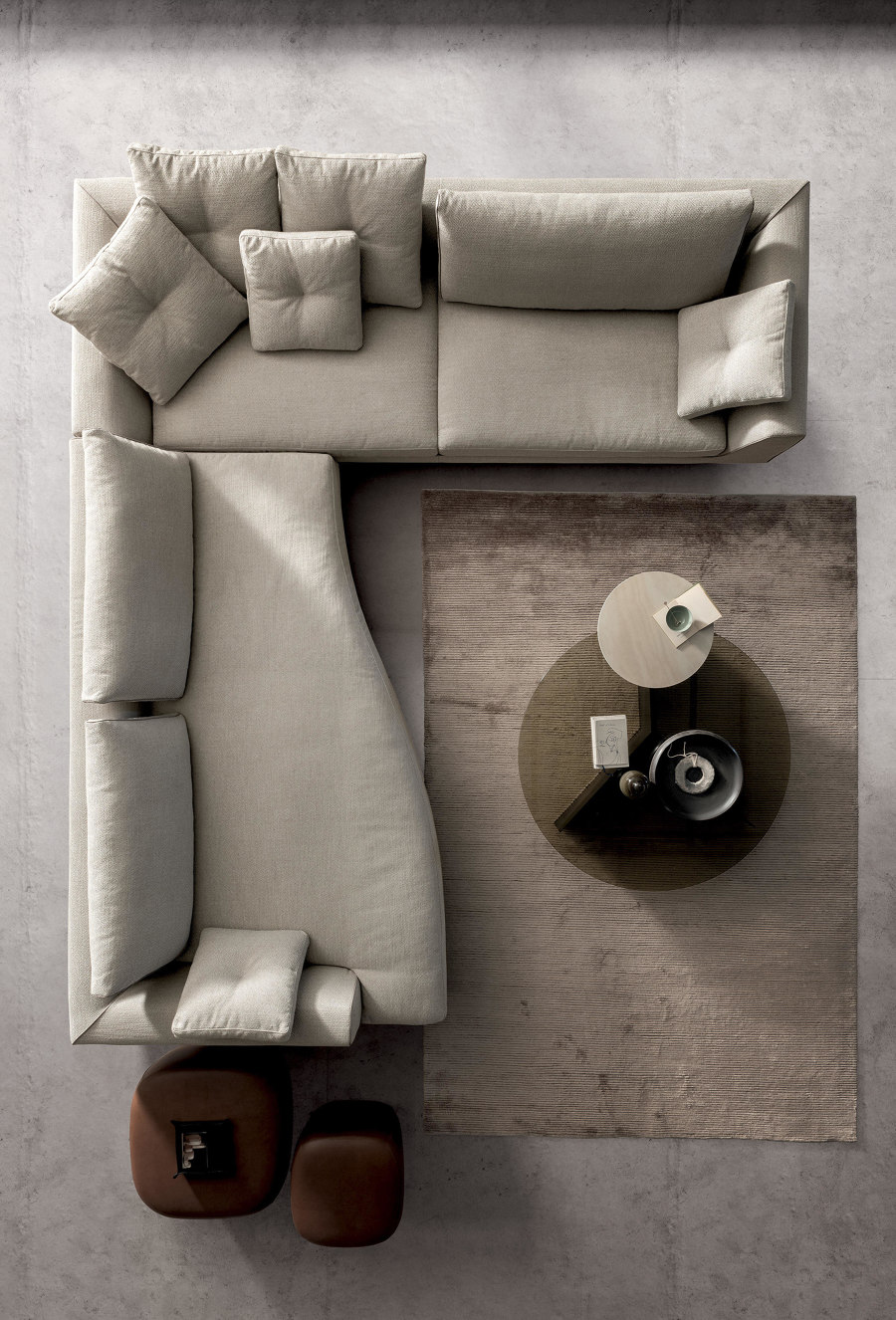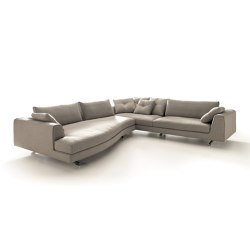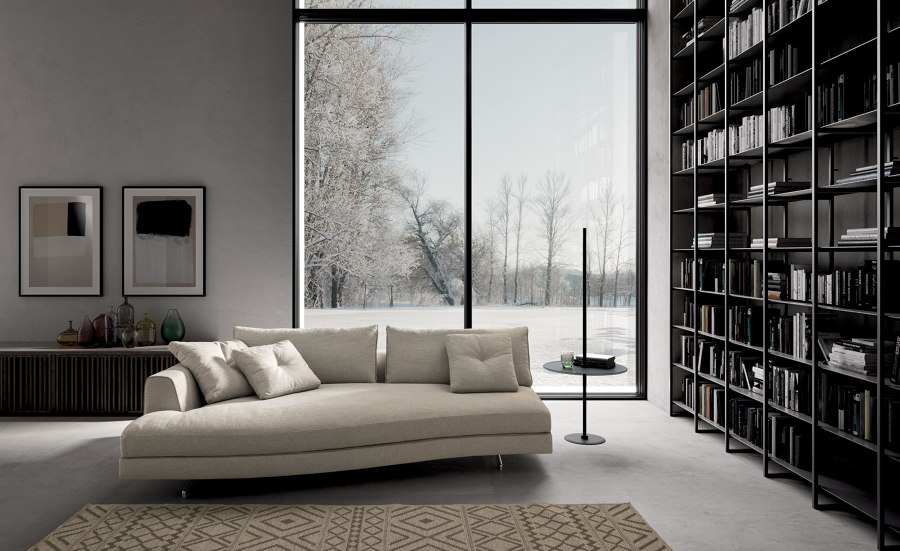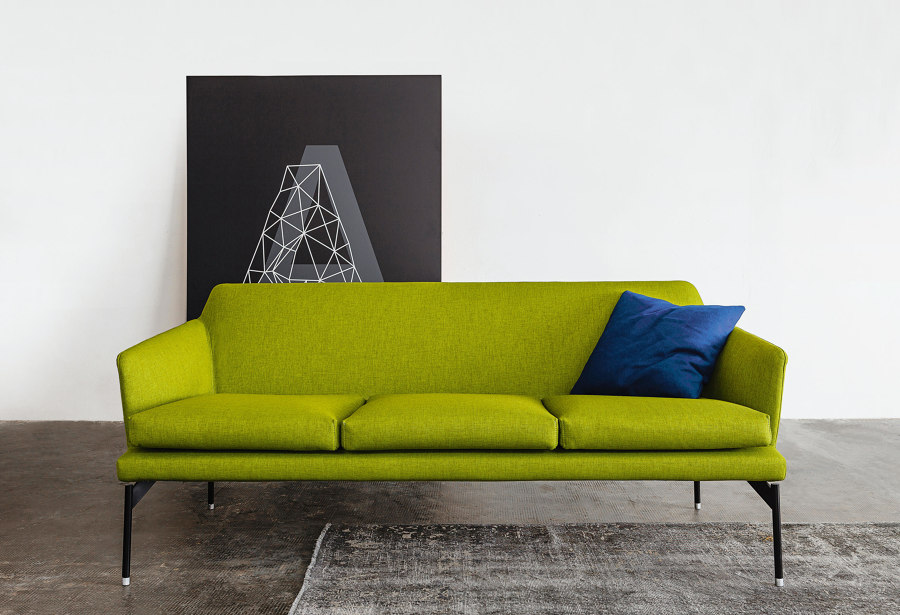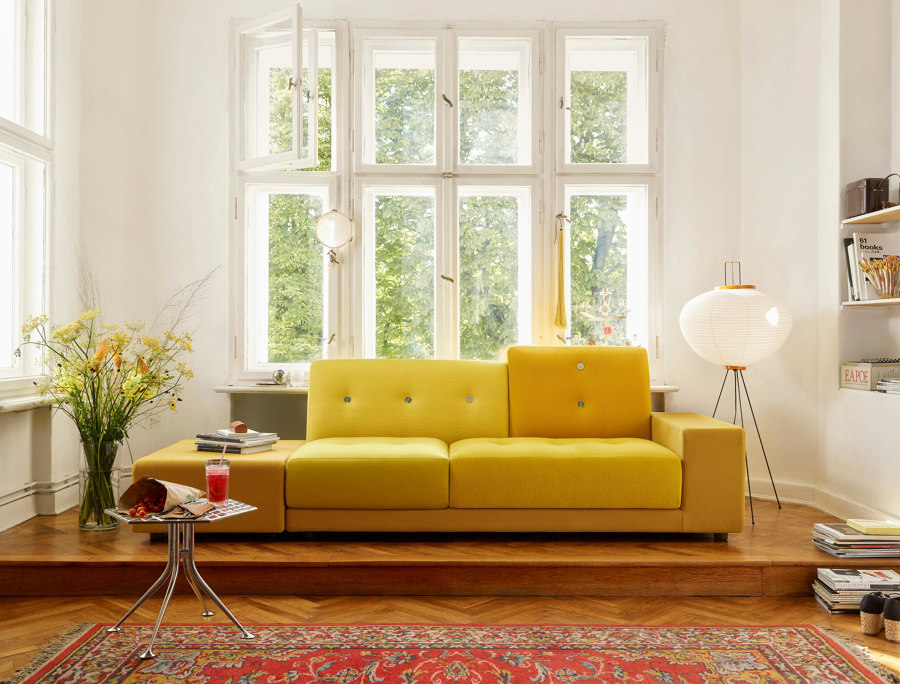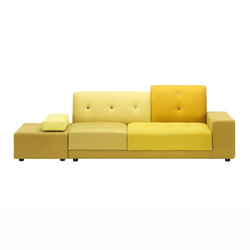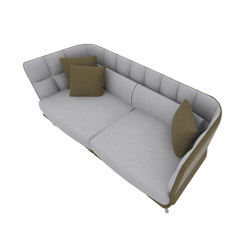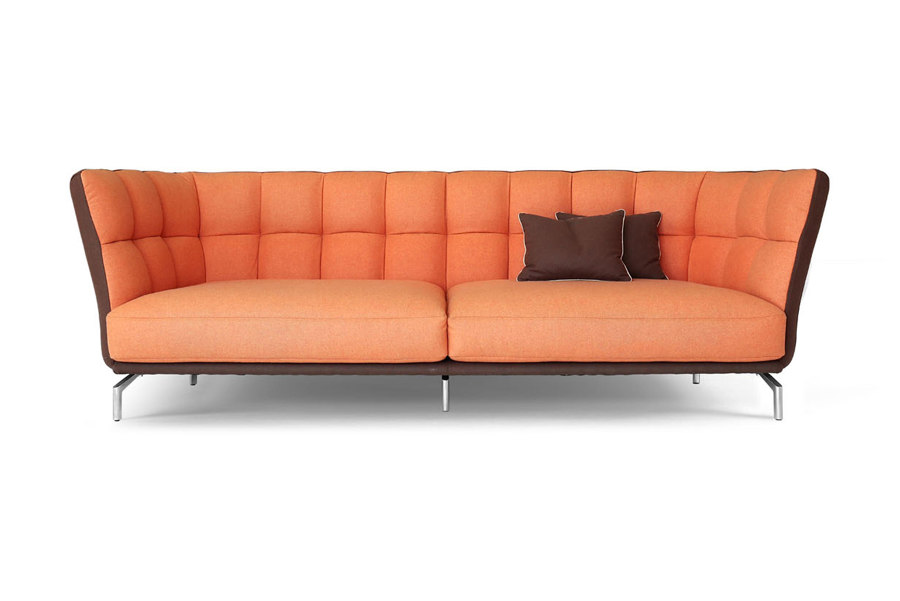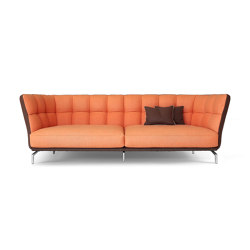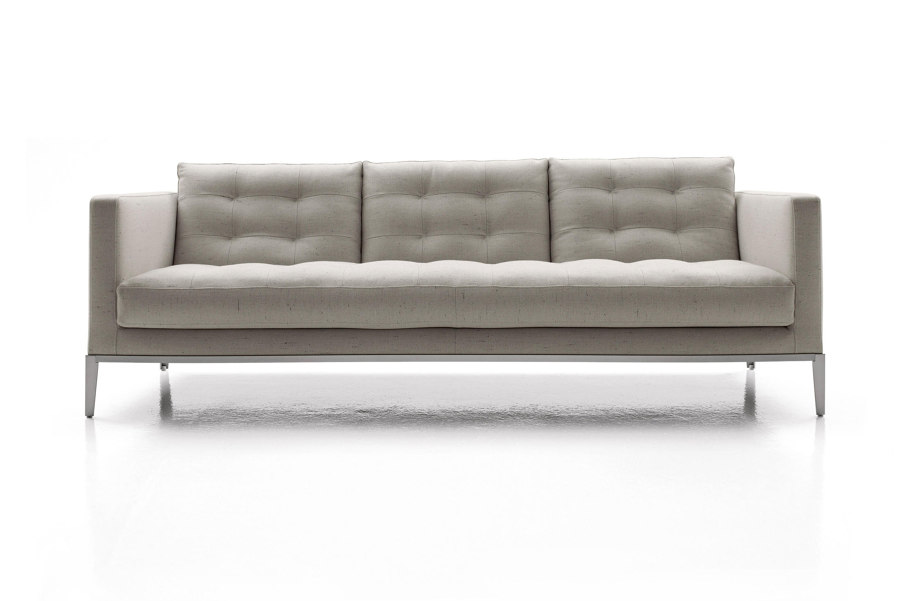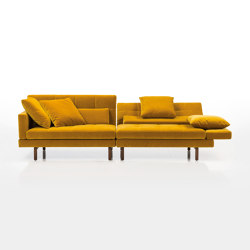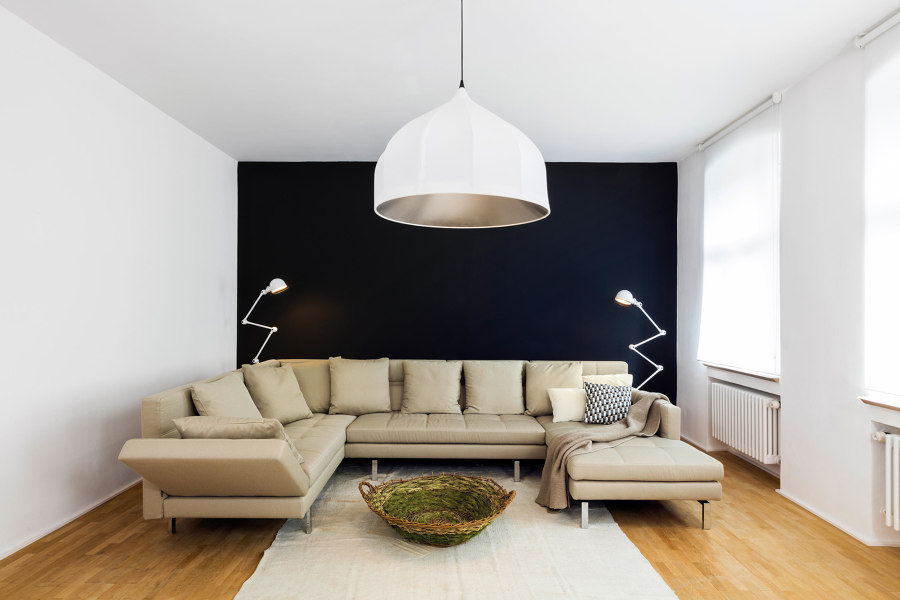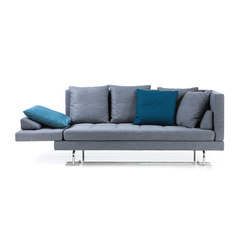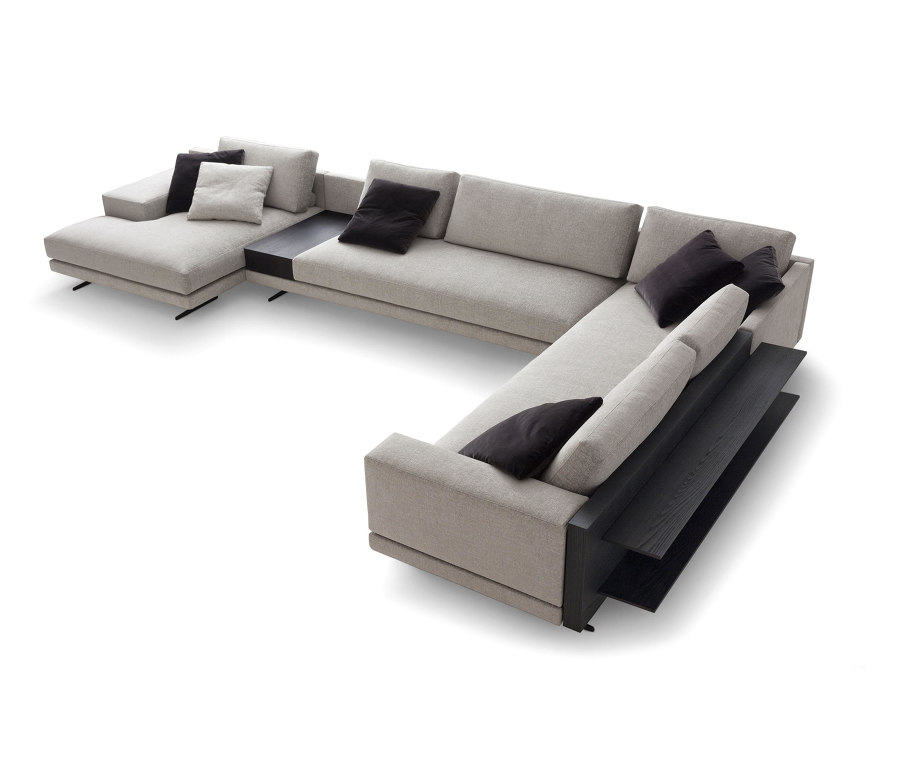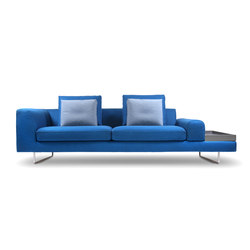The science of sitting: six rules for choosing a comfortable sofa
Texte par James Wormald
23.11.22
Even the best-looking sofas can cause twisted spines and sore backs, ultimately making users dread sitting on them. Here’s how to keep the style, without the stiffness.
Moya’s Lost sofa system features handy integrated side tables, combined with low armrests for easy reach, and high armrests for comfort
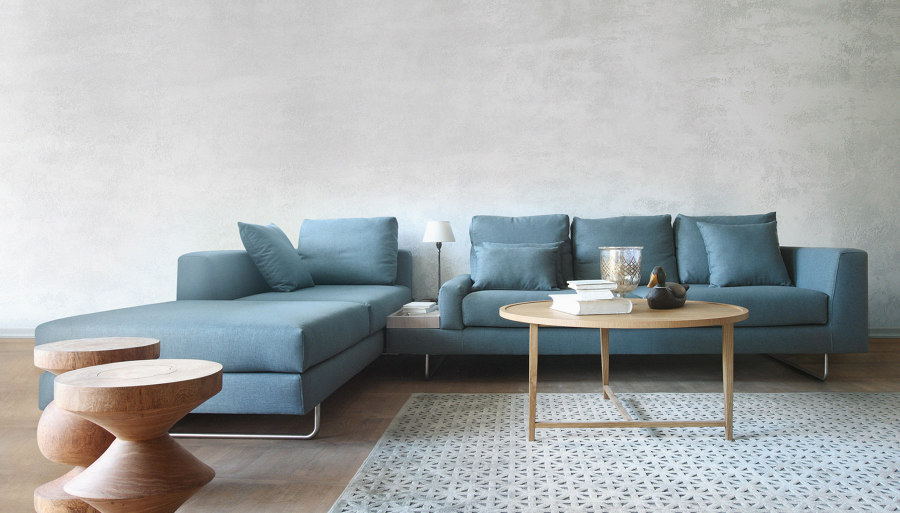
Moya’s Lost sofa system features handy integrated side tables, combined with low armrests for easy reach, and high armrests for comfort
×Falling in love is easy. When eyes meet tufting over a crowded showroom, the beauty of a sofa’s slender legs, soft fabric skin and inviting curves is like a siren song, blinding you from the truth. Then, six-eight weeks after the night before, the bubble bursts.
There’s nothing better after a hard day than cosying up on a comfortable sofa. In fact, there’s nothing better after an easy day either. But what if that settee stunner you fell head over cushion for, isn’t as nice to live with when you get it home? In order to avoid relationship pain (and neck and back), and ensure long-term compatibility, here are some rules for selecting the right sofa.
Valentini’s curved Eduard New sofa (top) offers variable seat depth, while De Padova’s Erei sofa (middle) and Vibieffe’s 770 Level Sofa (bottom) achieve the perfect seat height with low or high legs
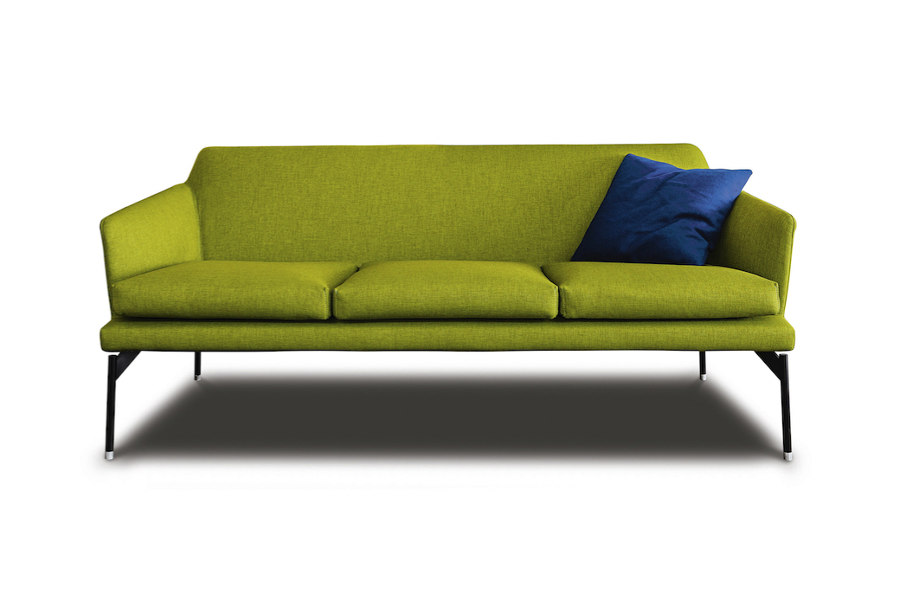
Valentini’s curved Eduard New sofa (top) offers variable seat depth, while De Padova’s Erei sofa (middle) and Vibieffe’s 770 Level Sofa (bottom) achieve the perfect seat height with low or high legs
×Depth: consider how you sit
Sitting comes so naturally that we just do it, without really thinking about how. But people actually have many different styles of sitting, from those with pious posture who like to keep their feet flat and back straight, to those who lie, those who lounge, those who tuck and many more.
Sofas with deep seats allow users to curl up their legs, but other users may wish to put theirs down on the floor. The Eduard New curved sofa from Valentini is a deep-seated sofa at one end – wider than a king-size bed, and a shallow-seated version at the other, bringing comfort to all.
The Eduard New sofa’s curve (top, middle) and 770 Level Sofa’s slender composition (bottom)
Seat height: don’t sub-size for comfort
How high should a sofa be? Low-slung sofas have a stylish, aloof demeanour, while staying in line with light, minimalist interiors. But if the seat is too low, legs tend to come out rather than down, and the lower back slumps under a lack of support. If the seat is too high, however, legs dangle off its edge, also making it short on support.
With its short feet, the Erei sofa from De Padova retains a low-slung look, but uses a thick seat to make up the height. Alternatively, Vibieffe’s 770 Level Sofa adds slender cushions and frame to longer legs, reaching a similar height but with a lighter look.
Vitra’s Polder Sofa (top) gives users the option of various back heights, while the high-backed Carlton from Giovannetti Collezioni (bottom) wraps around them for support
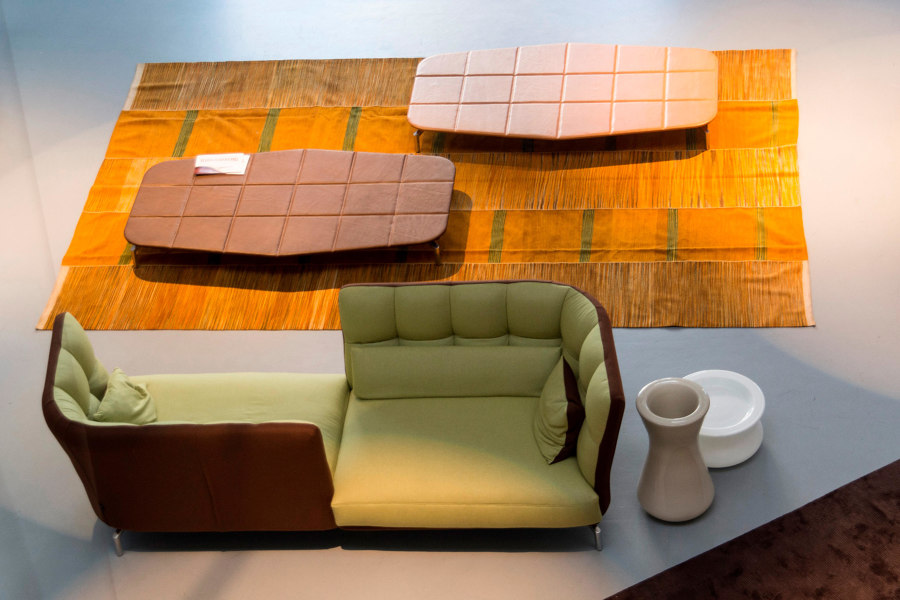
Vitra’s Polder Sofa (top) gives users the option of various back heights, while the high-backed Carlton from Giovannetti Collezioni (bottom) wraps around them for support
×Back height: balance support with style
Another issue surrounding sofa selection blunders, is the height of the back. Too high, and the look of the sofa has an overbearing effect on the interior, especially when placed in the centre of a room. But too low, and there’s insufficient upper back, head and neck support, putting more strain on the lower back.
Mixing up different back heights, Vitra’s Polder Sofa provides high-backed sitting, while keeping a low line. Meanwhile, high-backed sofas like the Carlton from Giovannetti Collezioni prove supportive seating can have aesthetic qualities too, with a high wraparound back that encloses the user in a cosy be-cushioned palace of comfort.
Giovannetti Collezioni’s high-backed Carlton (top), B&B Italia’s flat-backed AC Lounge sofa (middle) and the adjustable arms and backs of Brühl’s amber sofa (bottom)
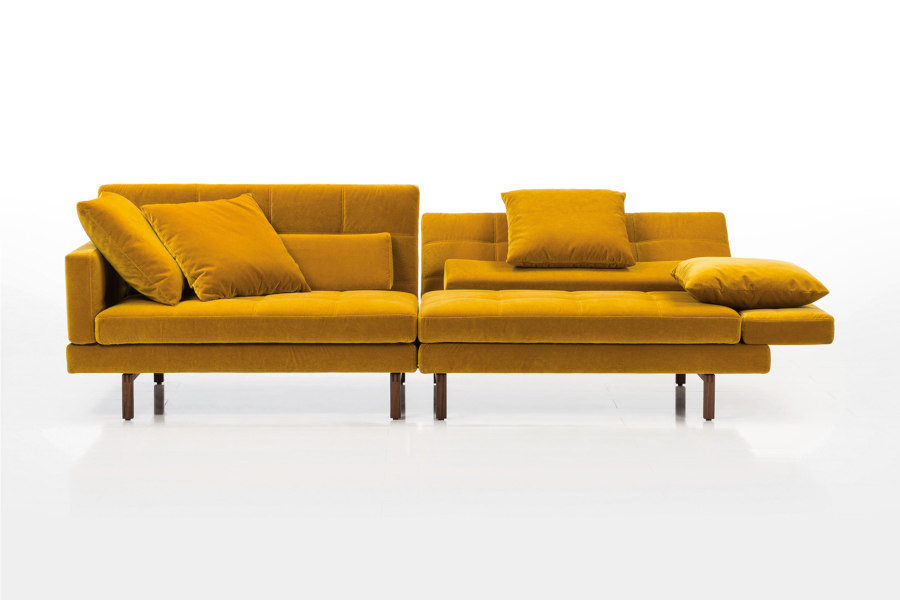
Giovannetti Collezioni’s high-backed Carlton (top), B&B Italia’s flat-backed AC Lounge sofa (middle) and the adjustable arms and backs of Brühl’s amber sofa (bottom)
×Back angle: sit up and listen or rest and recline
Sofas with sturdy straight backs like the AC Lounge sofa from B&B Italia are great for posture, especially when sat up in conversation or reading, but if you’re the type of relaxer who’s inclined to recline, doing so on a straight-backed seat causes slouching and a curved spine, in turn loading more work on to the neck and shoulder muscles.
Sofas with adjustable backs, like Brühl’s amber sofa, ensure reading, talking and lounging can all be enjoyed without the long-term build-up of pressure and pain. Meanwhile, amber’s adjustable armrests also allow the sofa to transform into an open-ended chaise longue.
U-shaped sectional layouts like Brühl’s amber sofa can line three walls (top), but when used in central areas, like this Lost sofa from Moya (bottom), they need accompanying furniture
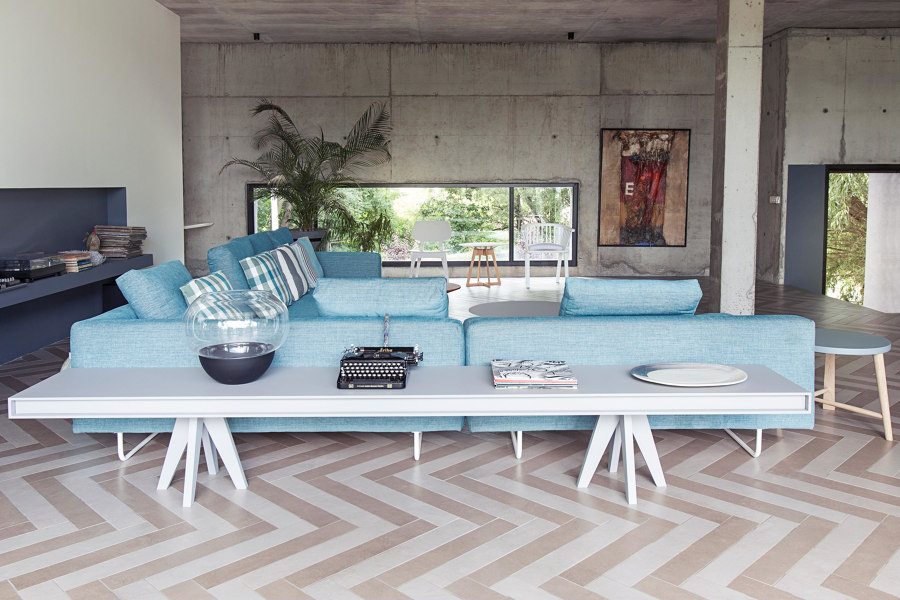
U-shaped sectional layouts like Brühl’s amber sofa can line three walls (top), but when used in central areas, like this Lost sofa from Moya (bottom), they need accompanying furniture
×Positioning: consider all the angles
Much of the pain caused by sitting on a sofa comes not from bad design, but poor positioning. Sectional corner or U-shaped sofa systems provide a multitude of angles for multiple users to sit, watch and talk together, without needing to twist or shift. But sectional configurations are often placed away from walls, leaving their backs exposed. Unlike sofa fronts, the backs are not as well-known for their good looks.
It’s often advisable, then, to cover up a comfortable sectional sofa from behind. Poliform’s Mondrian seating system, for example, adds a slim console table and shelving behind, to fill its rear view with decorative treasures or obscuring storage.
Sofa ranges with integrated side tables like Poliform’s Mondrian system (top) or Moya’s Lost collection (bottom) keep accompanying items like drinks and books within reach
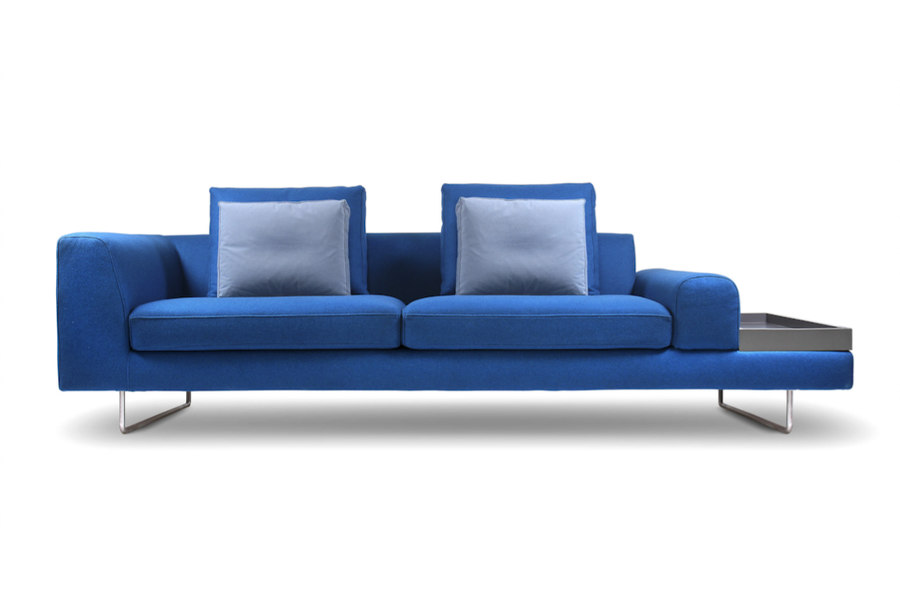
Sofa ranges with integrated side tables like Poliform’s Mondrian system (top) or Moya’s Lost collection (bottom) keep accompanying items like drinks and books within reach
×Accompanying surfaces: don’t get up
There’s nothing more frustrating, when you’ve just got yourself settled into the perfect sitting position with the right cushion support, and realise your drink, book or the remote control is way over on the coffee table, out of reach. You lean forward to get it and return as quickly as possible, but it’s never the same.
Sofa systems with integrated side tables, like Moya’s Lost range, ensure important items remain to hand in the immediate vicinity, accessible over low or no armrests. Lost’s high armrests on the opposing sides, meanwhile, are ideal for positioning the upper back and aligning the spine.
© Architonic
Head to the Architonic Magazine for more insights on the latest products, trends and practices in architecture and design.

